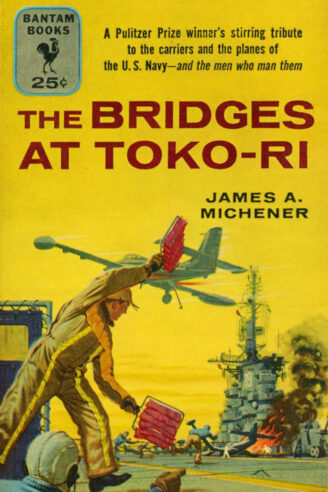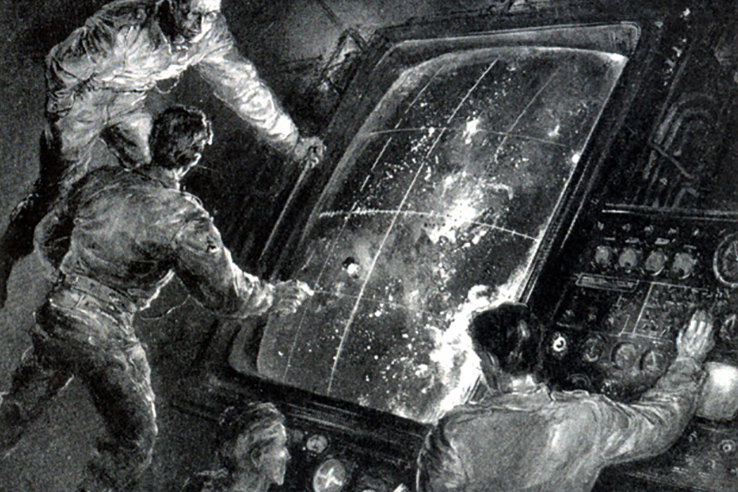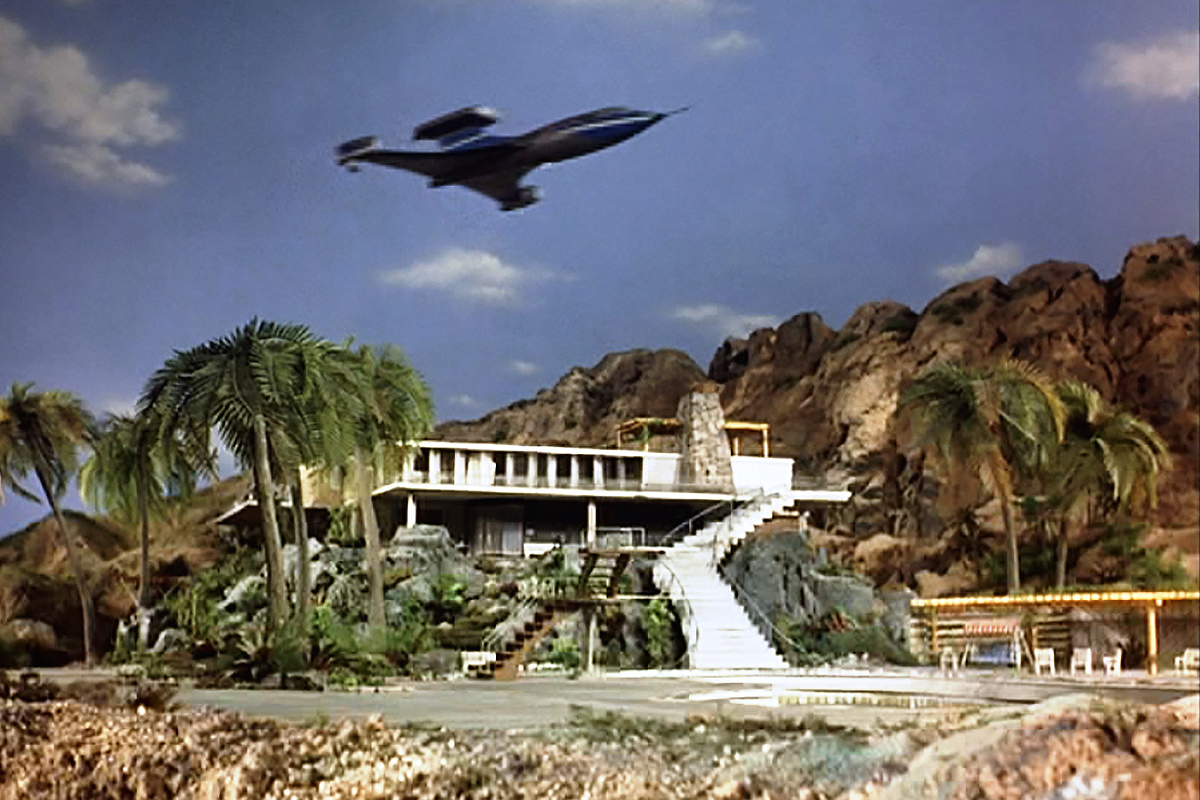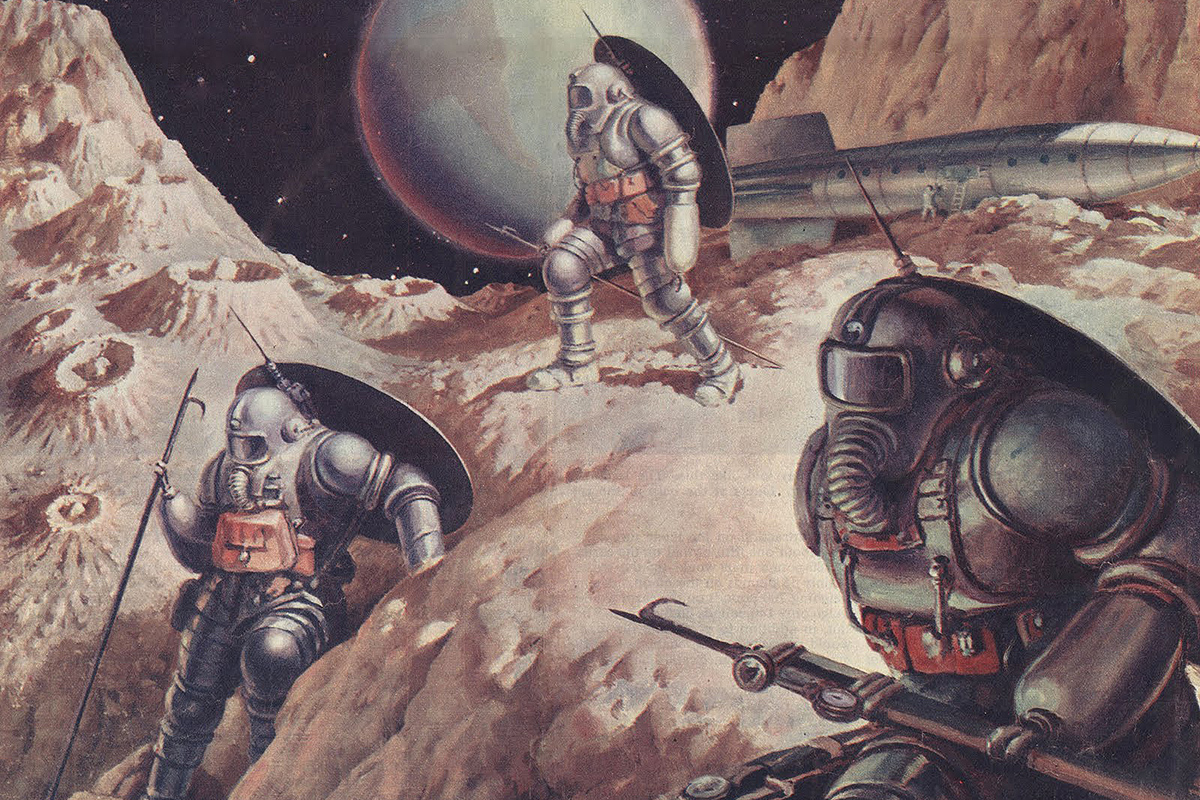Korea was the first slugfest of the Cold War. It was where capitalism and communism had their first conflict on open ground, rather than through covert means such as in Greece and Iran. In America, it is something of a forgotten war, overshadowed by World War II before it and Vietnam after it.
James Michener, known for his epic historical novels, was a journalist during the war (and elsewhere; his experiences in the 1956 Hungarian Revolution were the basis for The Bridge at Andau, reviewed here). He draws on that journalistic skill in his 1953 novella The Bridges at Toko-Ri.
The book is about the toll war takes on people, on servicemen and their families. It revolves around naval aviators based on an aircraft carrier off the coast of the peninsula, tasked with destroying the titular bridges.
Aboard the carrier, the technical detail is evident. During the war, Michener was embedded on multiple aircraft carriers, and his writing reflects that experience. The Bridges at Toko-Ri rivals many science-fiction novels in terms of its attention to technology, particularly the suits the pilots have to wear. The men feel like candies wrapped in foil.
The action is described vividly, putting you right in the middle of the maelstrom that was MiG Alley. It is a lightning-fast war, where the slightest mistake could kill you. Contrasting and yet complementing the speed is the sheer, unrelenting cold of these sequences. You will want to wrap up in a warm blanket for a lot of this book, on land and sea, for this permeates the narrative and makes the entire fight feel all the more dangerous.
Noncombatants aren’t neglected. The wife and children of one pilot play strong roles, serving as representatives of the American homefront. Presaging modern wars, they remark that, to most people at home, there might as well be no war. There is also a chapter about the men on leave in Japan, a country represented fairly (at least as I interpret it), and the paramour of one other pilot.
Michener’s major theme is loss. It will sneak up on you, lurking behind the thrilling action scenes. This novella was based on the story of helicopter pilot John Kevin Koelsch. By the end, you will understand why the parents of one man who died in Korea returned his Purple Heart to President Harry Truman.
The Bridges of Toko-Ri is a stunning panorama of a forgotten American war, one every bit as vicious as the wars that preceded and followed it. It’s a brief, brisk read, but a concentrated one. You will be shook by this book, and this war, in all its frost and fire.





